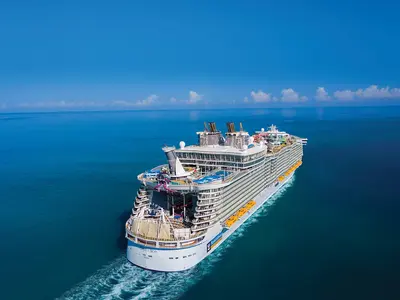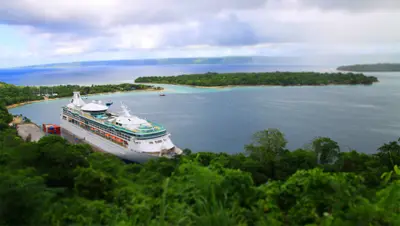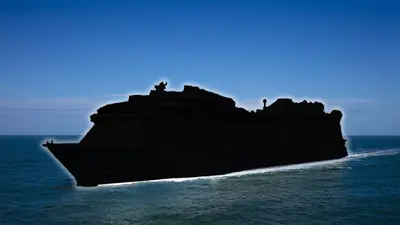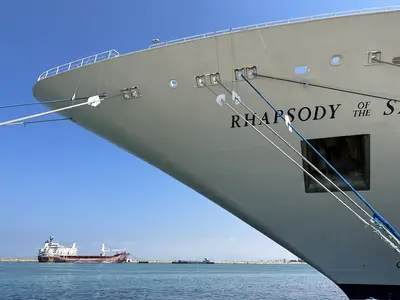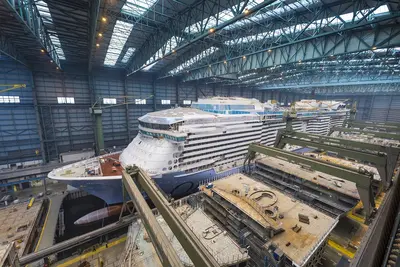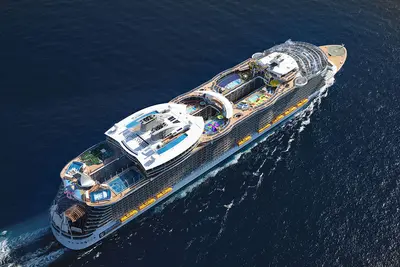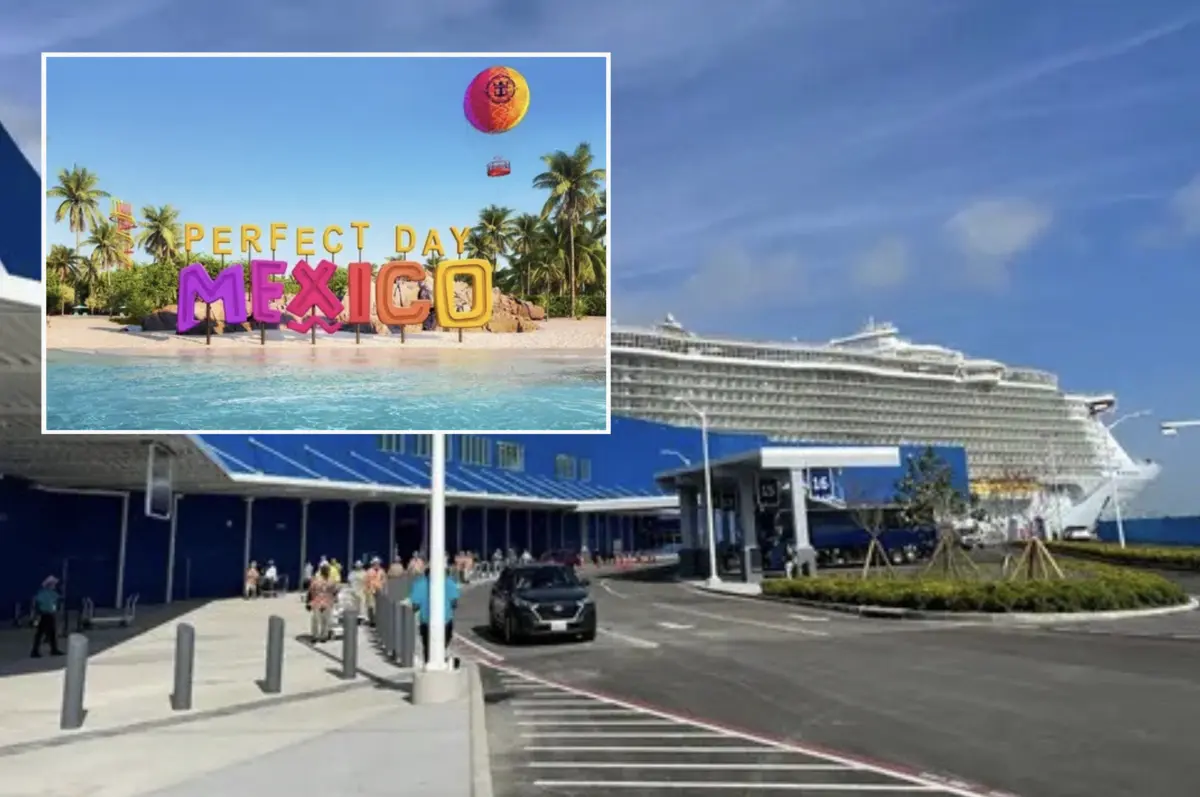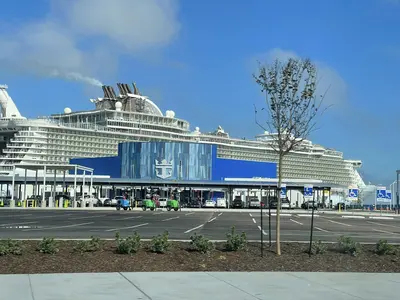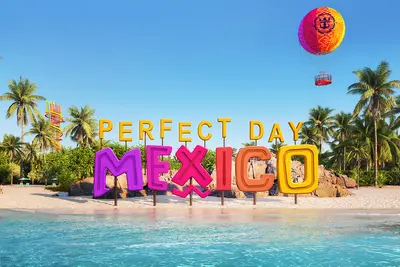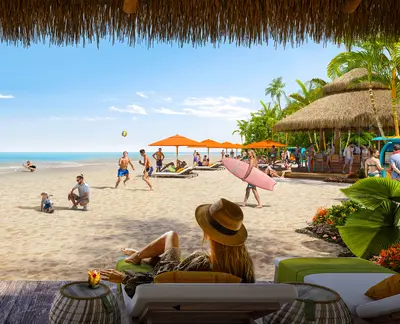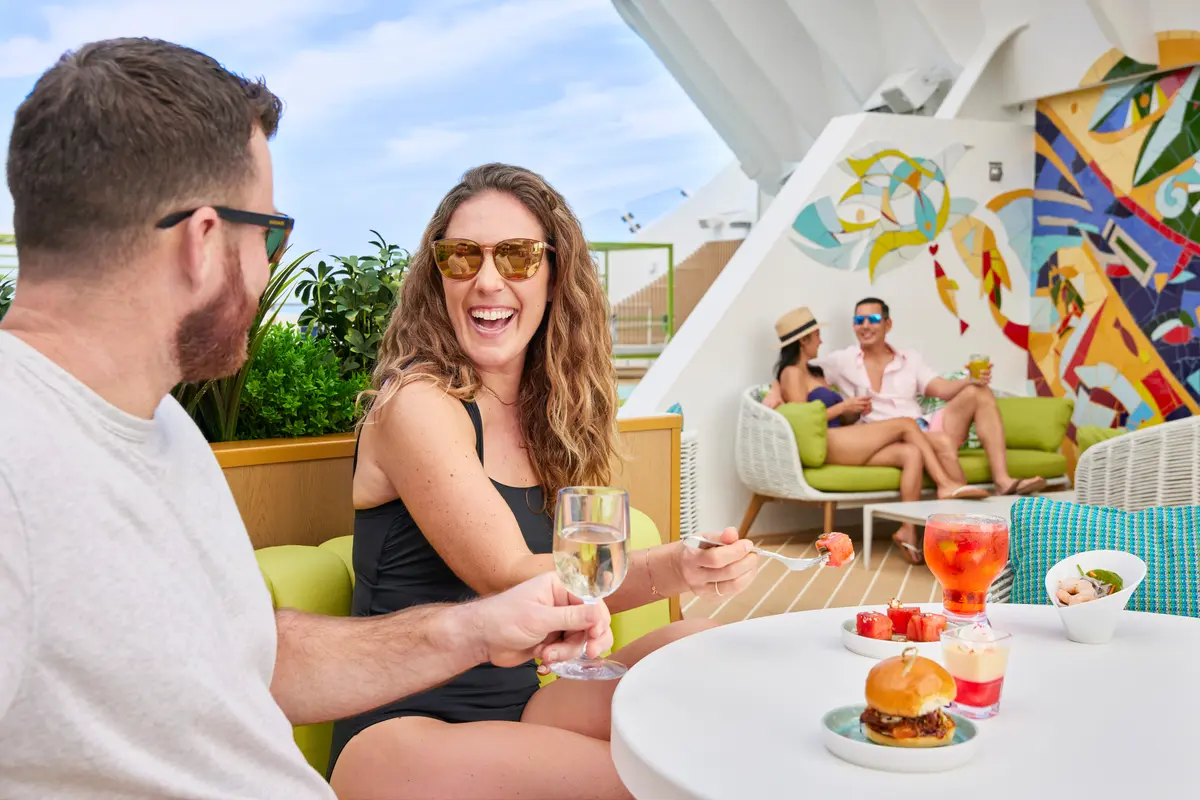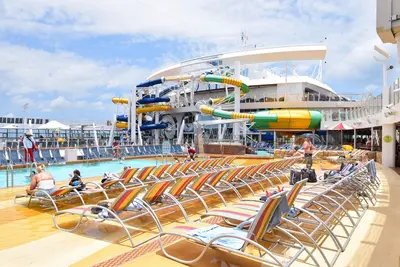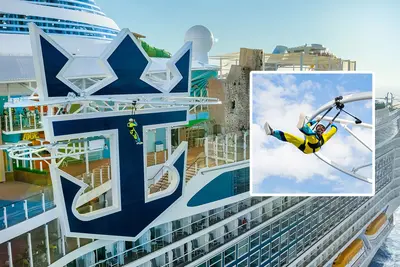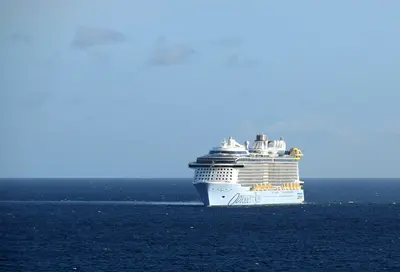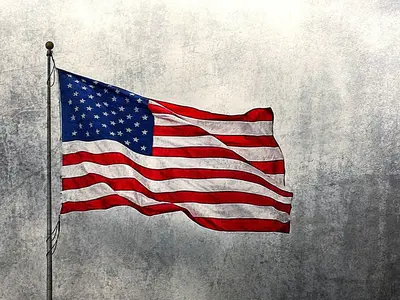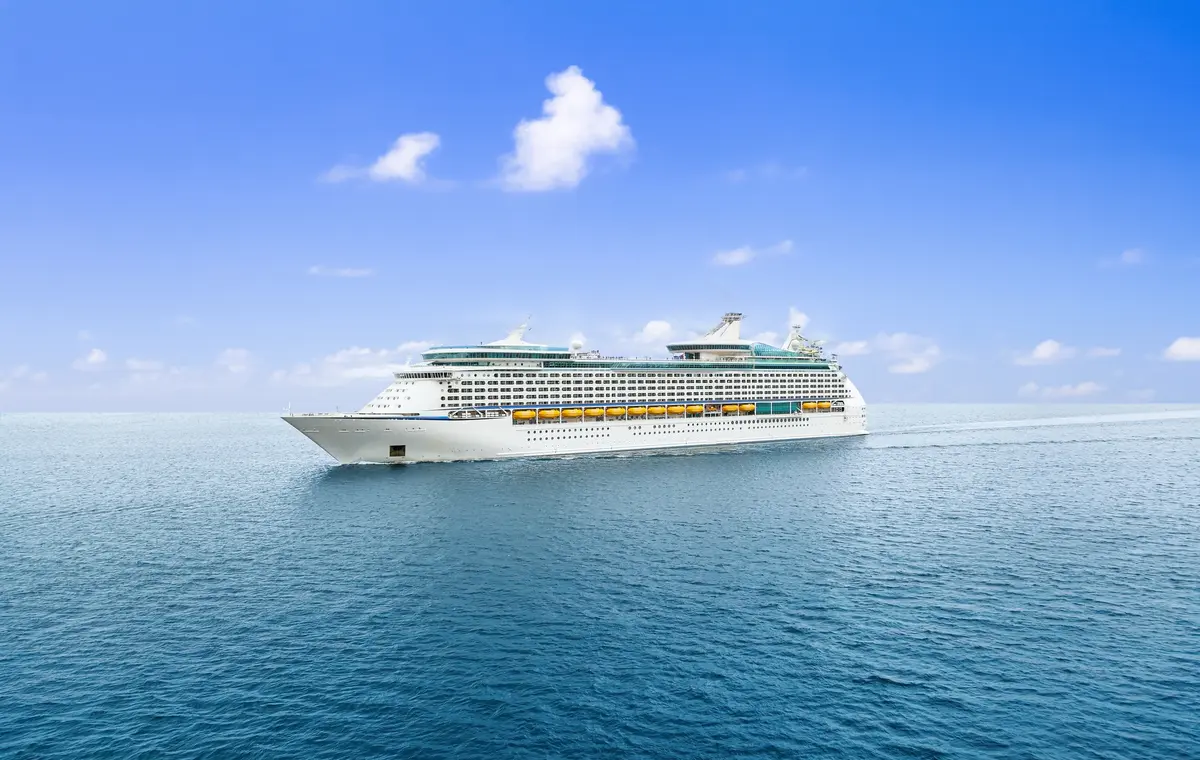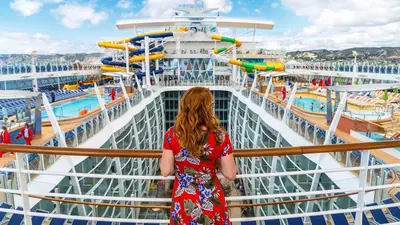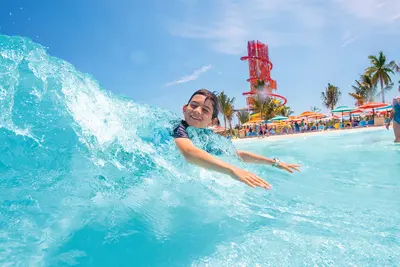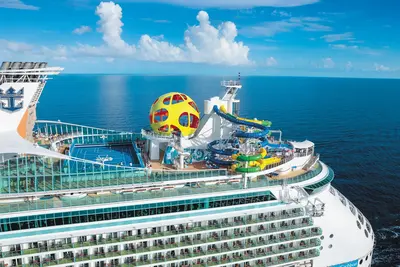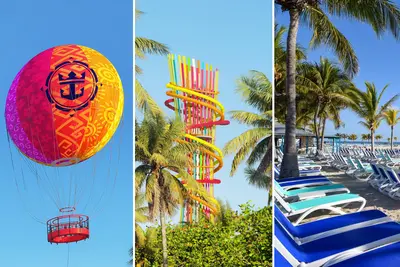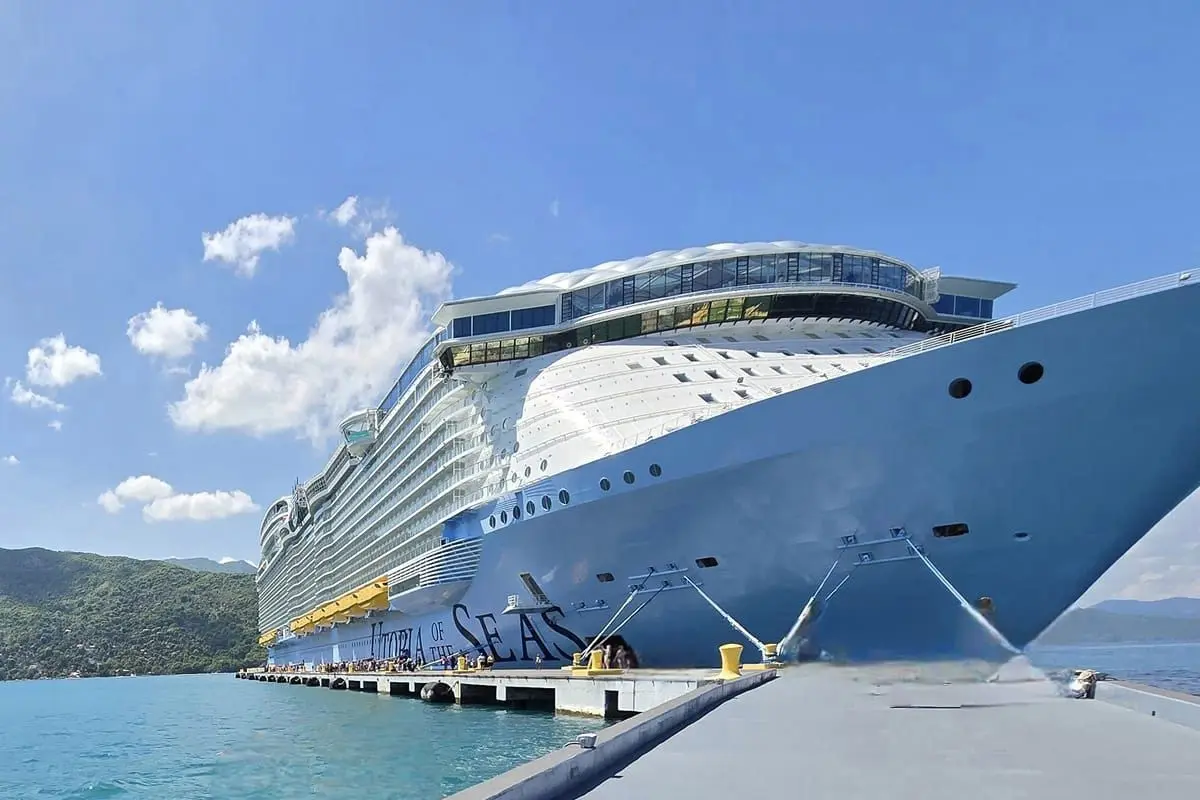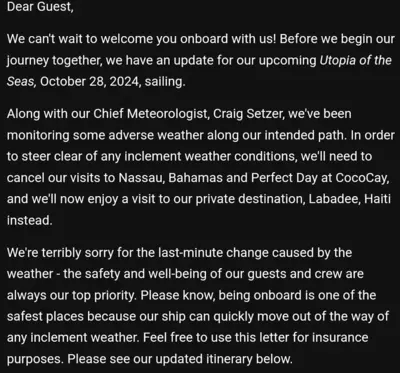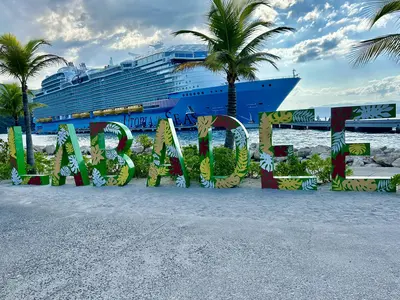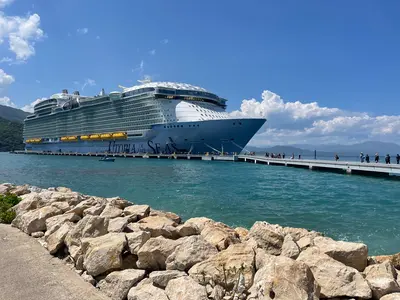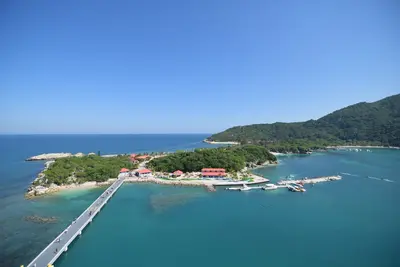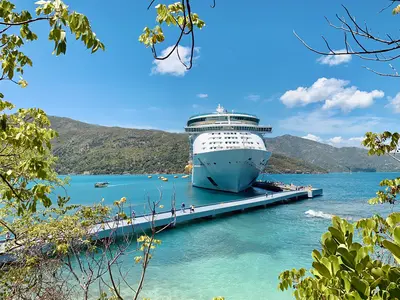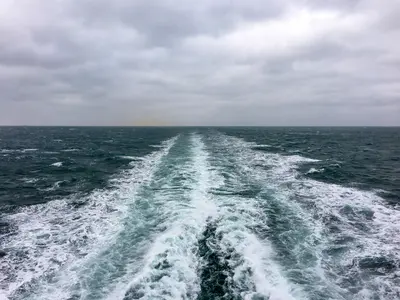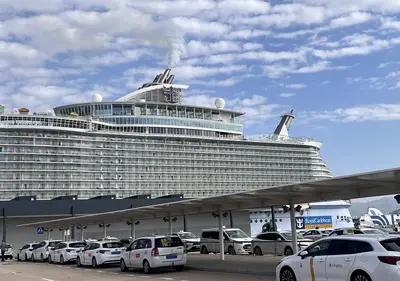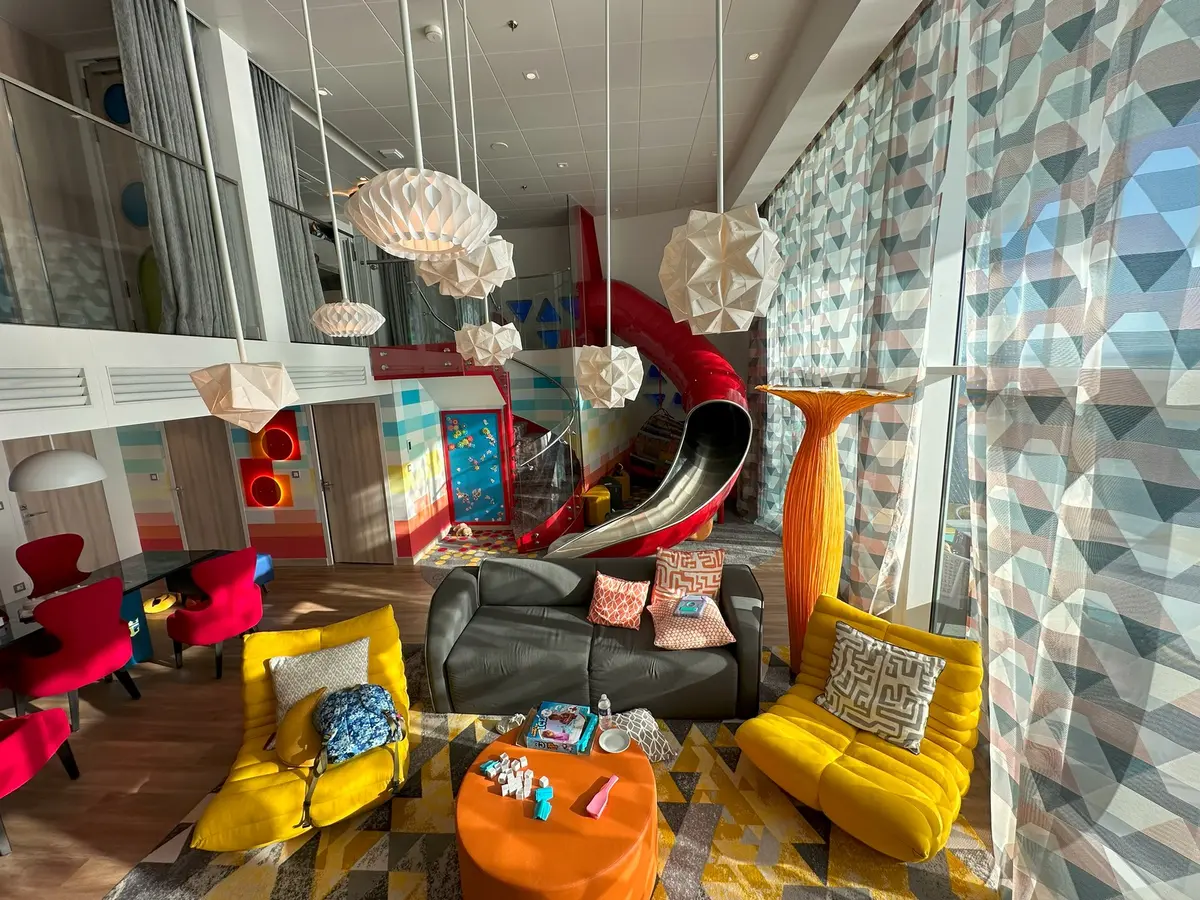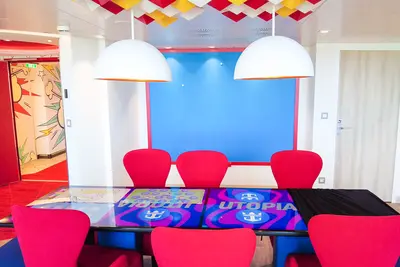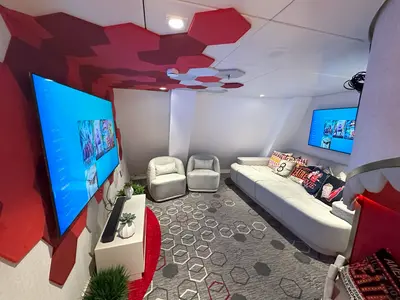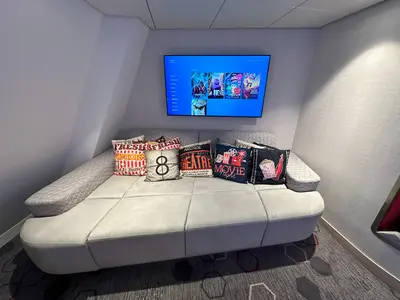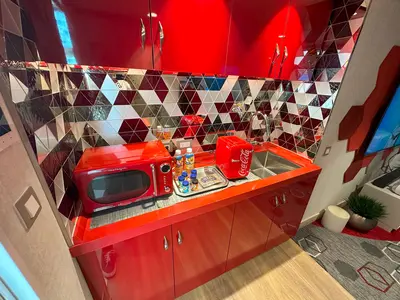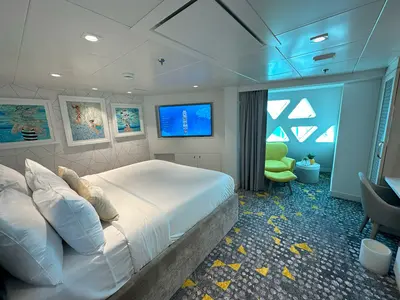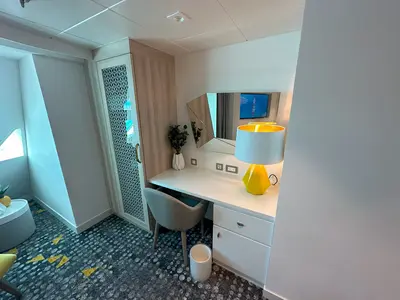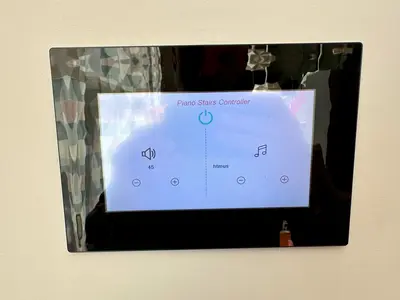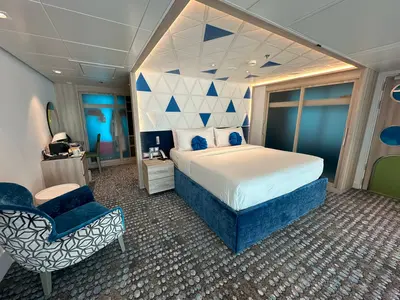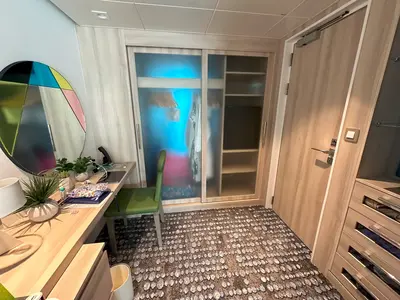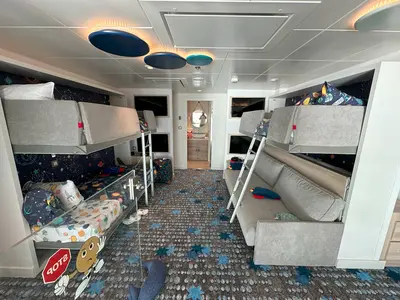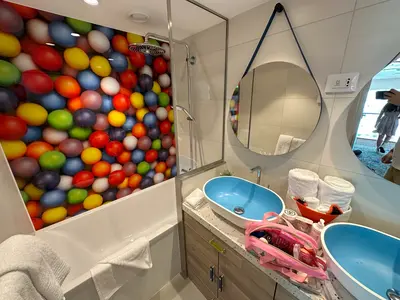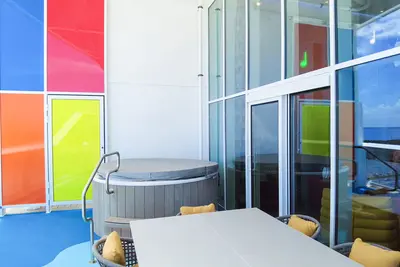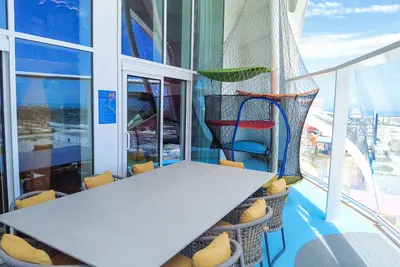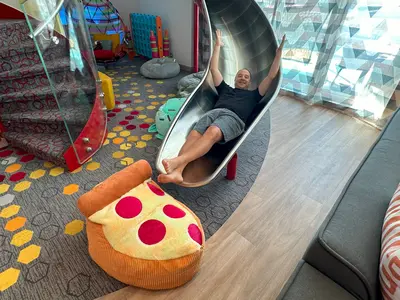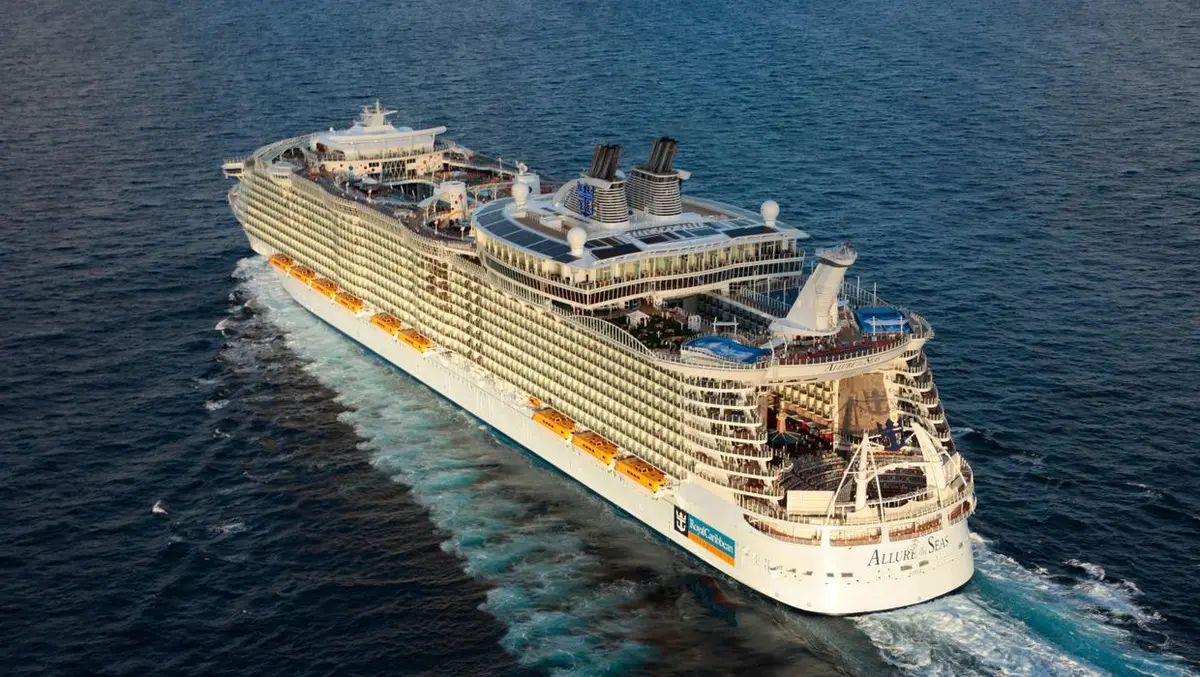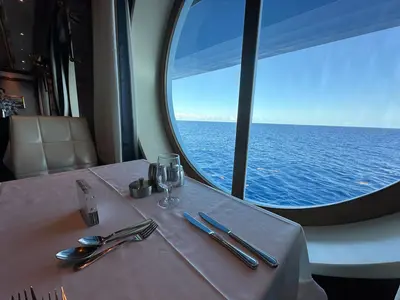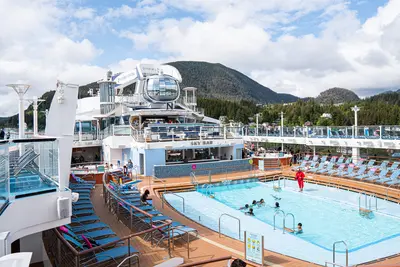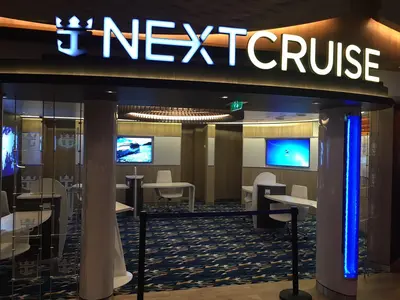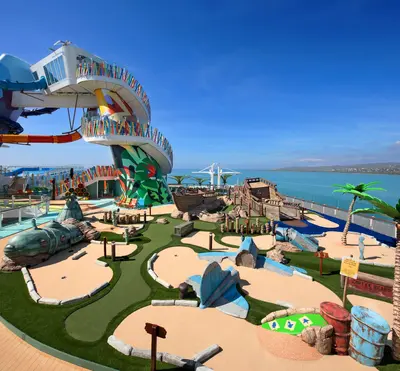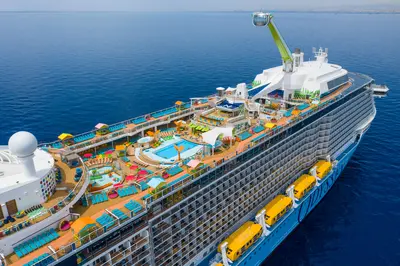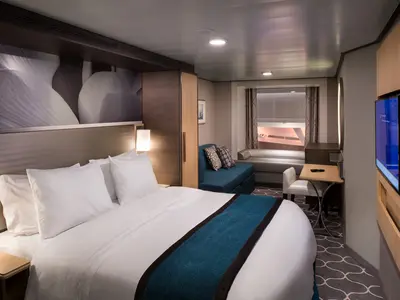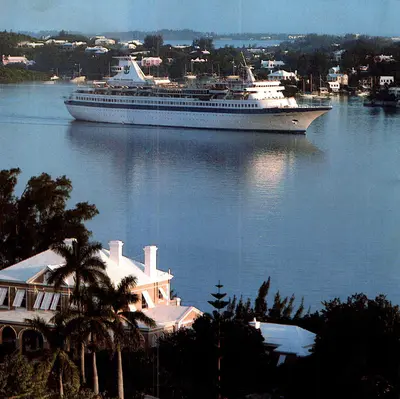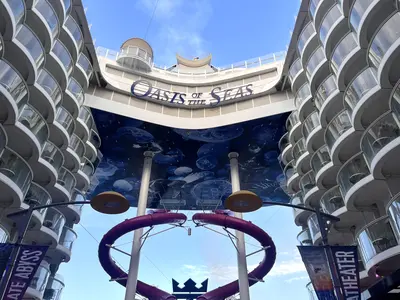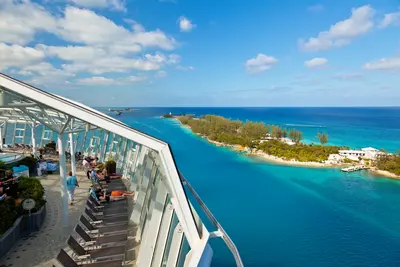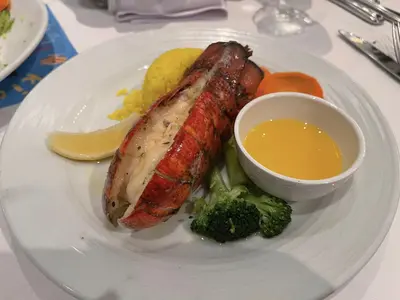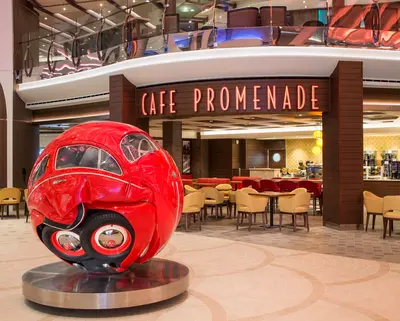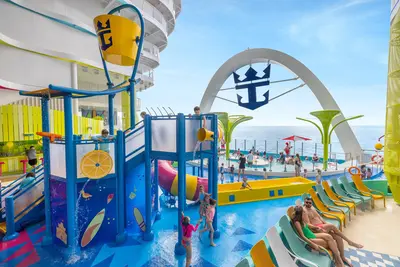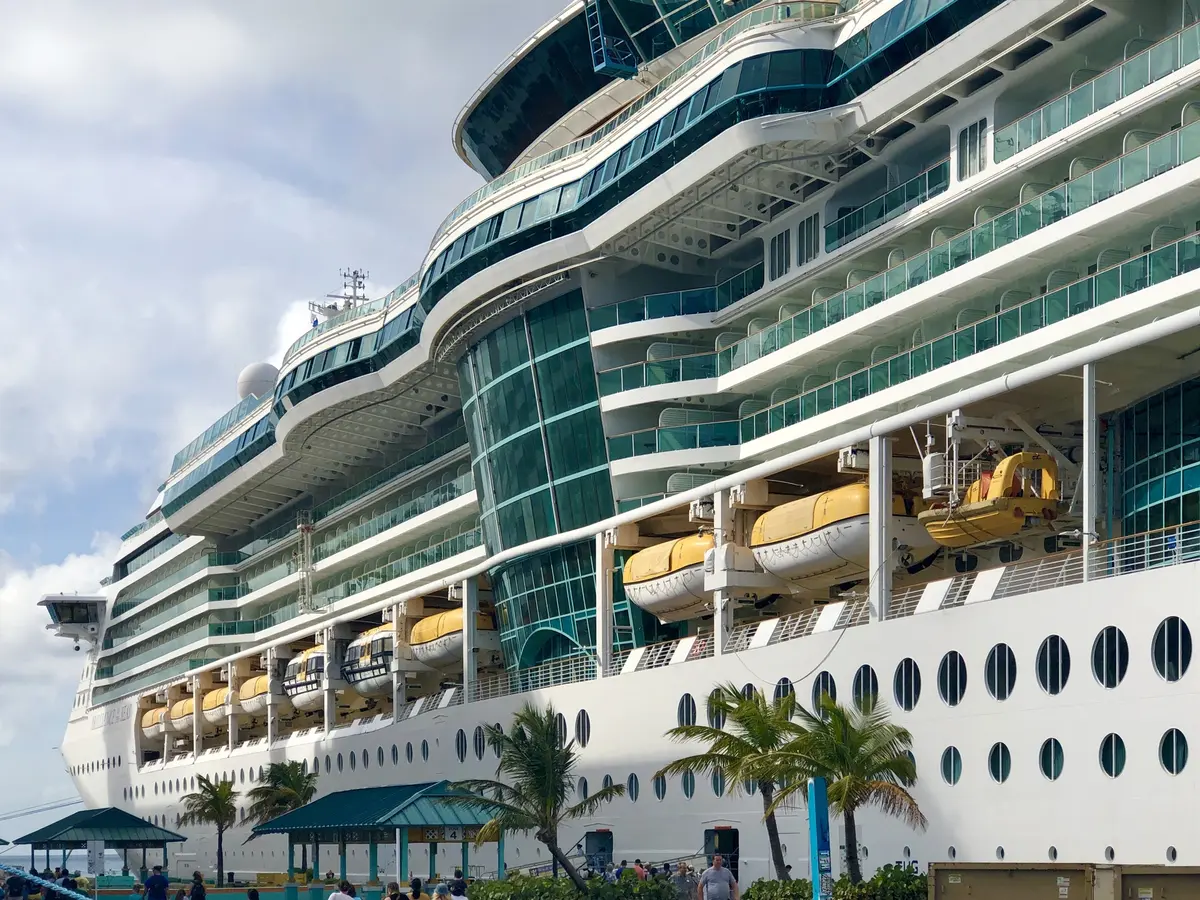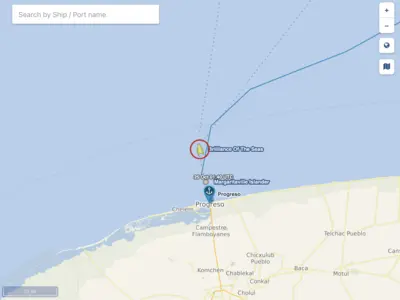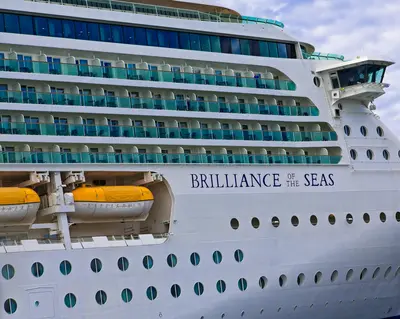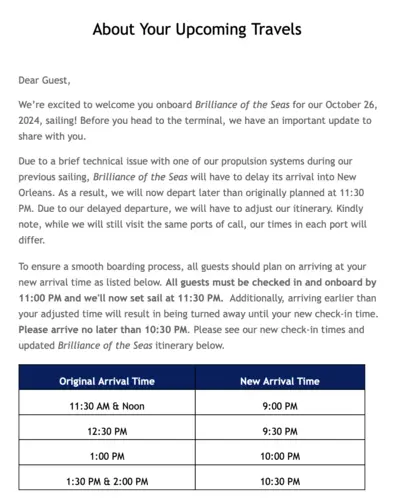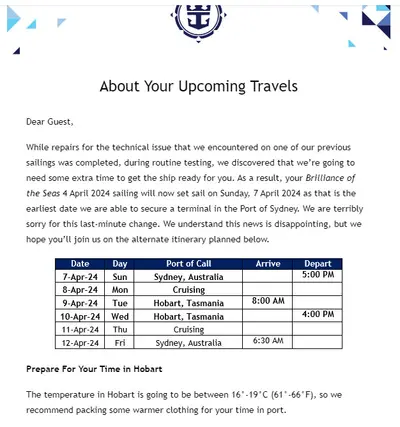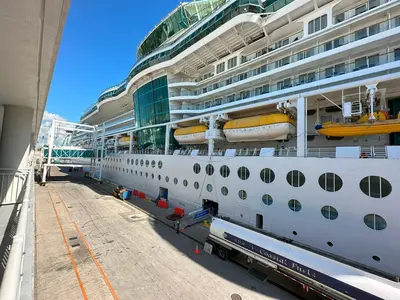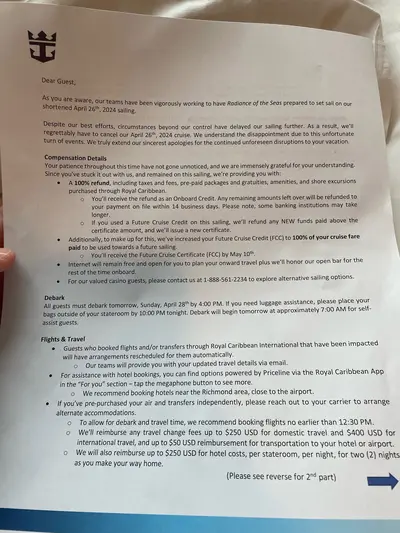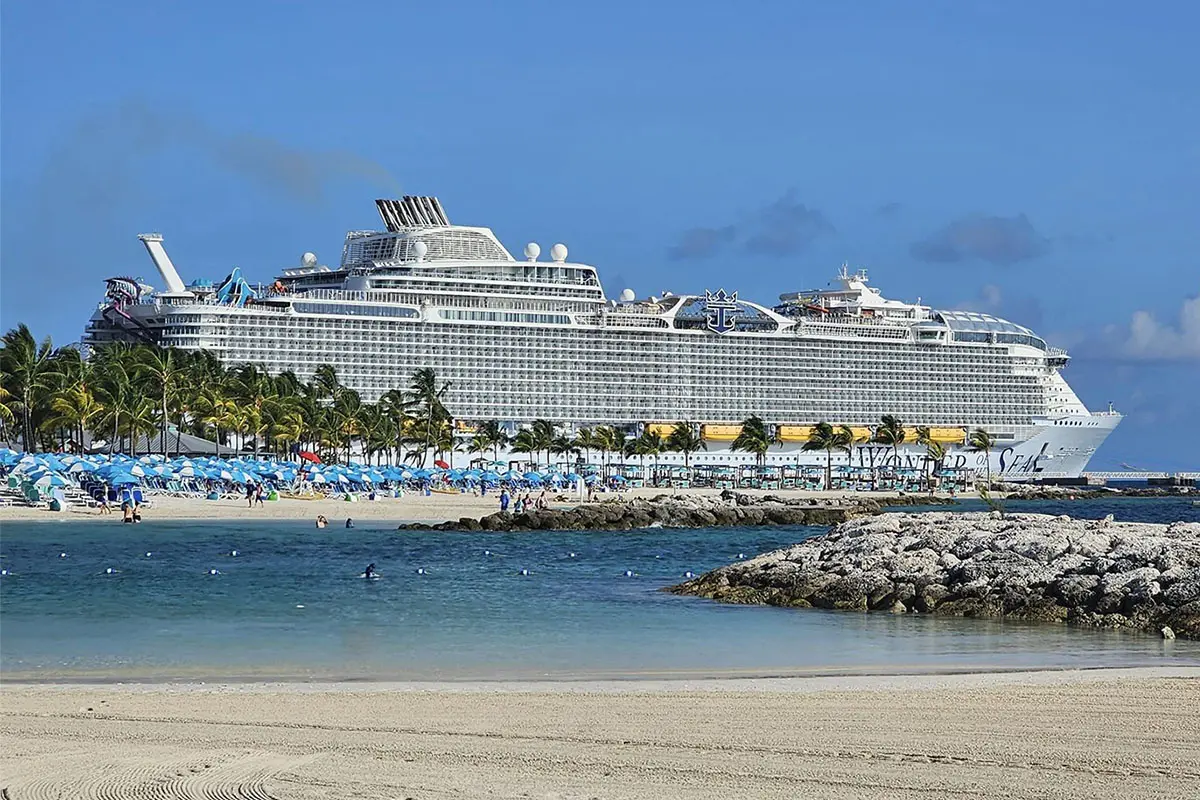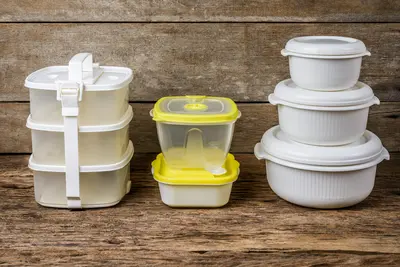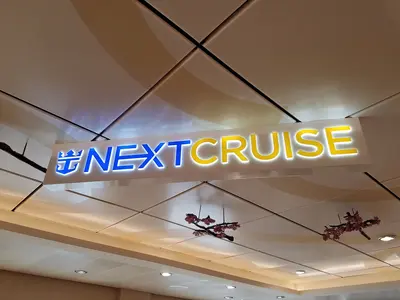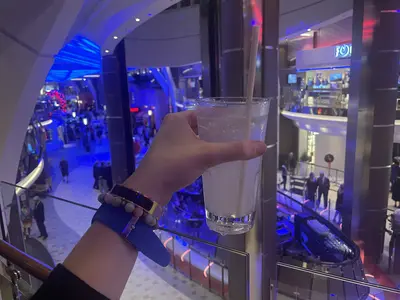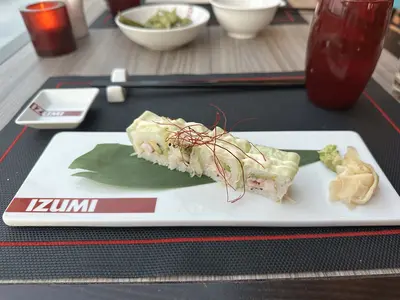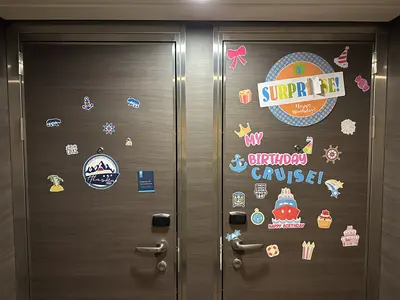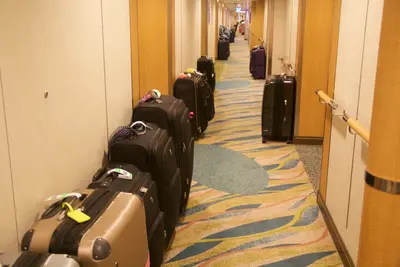Royal Caribbean is well-known for offering family-focused vacations, but they've taken this to a new level with a special suite.
The Ultimate Family Suite is a one-of-a-kind cabin on Utopia of the Seas that is massive and includes just about everything kids, their parents, and visiting friends could ever want in a room.
Essentially, the design of the suite was centered around coming up with just about everything a family would want in a room, and then added a bunch of other options they've only dreamed of.
This isn't just one of the biggest suites on the ship, it also comes with Star Class benefits, which means it has some of the best perks on the ship.
Ordinarily, a suite this big with this much to do is priced well out of my price range, but because Utopia only sails short 3- and 4-night cruises, the barrier to entry was less than if it was a week-long cruise. Plus, I booked it years ago when Royal Caribbean opened up bookings and I scoured the schedule for an opportune time to book it.
For my family of 4, the price came out to $12,609.08 for the 3-night cruise. I paid for it myself, and neither Royal Caribbean nor a travel agency subsidized or paid for the cabin.
Expensive, yes, but in the grand scheme of this particular suite, it was a reasonable price for an unbelieve room. Plus, I was curious to know if the experience really matched up. Was the cabin all schtick? Or would it be the kind of suite I'd actually want to stay in.
I've stayed in some of Royal Caribbean's biggest cabins in the past, so mega suites aren't new to me. I wasn't sure if this room would live up to the hype, and I was concerned I would be disappointed having paid for a lot of fluff, and not a suite that delivered on a good overall experience.
My suite was located on deck eighteen, which is deck reserved exclusively for suite cabins.
Decks 17 and 18 are part of the suite neighborhood, which includes the Suite Lounge and Coastal Kitchen, an exclusive restaurant for guests staying in a suite (and Pinnacles too).
There's a special entrance to the Ultimate Family Suite as you come out of the elevators.
When I tapped my room key card and opened the door, I walked into the living room and instantly recognized this kind of a room was totally different than what I was used to.
The Ultimate Family Suite has three bedrooms, three full bathrooms, a large living room, play room, and a movie room.
It has a loft configuration, which means there are two levels. The master bedroom and kids room are on the upper level.
On the bottom floor is the living room, dining area, play area, and a third bedroom with nearby bathroom.
The living room is larger than many livings room on land, and has a giant sofa and comfy chairs that are perfect for watching television, playing video games, or just chatting with friends. There's a PlayStation and Nintendo Switch that come with the room to use.
There's also an expansive digital table where you can not only have meals, but play a variety of video games. Kids and adults are quickly drawn to trying a game or two. My kids spent much more time playing with this table than I expected.
Without a doubt the giant slide is the pièce de résistance of this suite. Everyone is instantly drawn to this feature, and it's undeniably fun to go down (over and over again).
My concern with the slide is it would be a one-and-done thing, but my kids went down it every day dozens of times. They used the pillows that came with the suite as a mat racer, and they enjoyed riding it over and over again.
And yes, adults can go down the slide too. I was impressed how fast you'll head down on it, and everyone that visited the room wanted a try at it.
Underneath the slide is play area, with a great suspended chair.
At the exit of the slide is the movie room, which is about as big as some inside cabins.
There are no shortage of televisions in this suite, but the movie room has no windows, so you can dim it perfectly for movie watching. Star Class guests get the pay-per-view movies for free, but you could also stream your favorite flicks to the screen.
The couch is like an overflowing sofa made out of the material from your favorite pillow. I don't know why there's a television behind the couch.
There's even a microwave where you can heat up your own popcorn.
Near door is a bedroom, which is probably best for grandparents, friends, or even older kids.
It has a king size bed, vanity area, and a view of the pool deck.
A full bathroom is located next to this bedroom, which also serves as the bathroom visitors would use.
I was impressed by the double sinks and giant shower, that even has a large bench.
Heading upstairs, you'll walk up piano stairs. Each step plays a note of a classical music selection. Beethoven's Für Elise was what I heard all weekend. Don't worry, there's a way to turn it off if you prefer (or when going to bed).
The master bedroom is similar to other loft suite master bedroom configurations.
There's a king size bed that faces the windows, so you could wake up to a view of the ocean. It has nightstands on both sides of the bed, with plenty of power plugs.
There is a sitting area and vanity nearby, along with giant closets behind the bed.
The master bathroom features double sinks and a big shower, with rainforest head and opposing shower heads.
Next door to the master bedroom is the kids room.
There's a fun door that has a "doggy door" for kids to climb through. I was surprised how much my kids opted to go through the hole rather than open the door.
There are four bunk beds, and each has its own television with headphones. No fighting over what to watch in this room!
There's a full bathroom attached to this bedroom too.
The entrance to the slide is right off the kids room, and they loved this feature. Being able to slide down rather than take the spiral staircase was their preferred mode of transportation.
Outside the cabin is a sprawling balcony space.
The balcony has three main features, and it faces the ocean.
Staying in this suite means you have your own hot tub to enjoy. It can fit four adults reasonably. Beyond that, and you'll have to start getting creative with where everyone's legs and feet are going.
There's a dining space outside too, so you can have meals delivered here.
And you'll also find a lucky climber feature, which is really fun for young kids. There's a larger version on the Boardwalk, and I guarantee toddlers will never want to leave it.
An equally compelling feature of this suite is the Royal Genie services, which provides VIP privileges to everyone staying in the cabin.
Speaking of benefits, everyone staying in the Ultimate Family Suite gets complimentary access to Thrill Waterpark at Perfect Day at CocoCay.
Obviously this is not a cheap room. It's not affordable or a good value. It's designed to be the epitome of splurges and offer one of the most luxurious and fun rooms you could ever find on Utopia of the Seas.
While the price tag is high, it delivers a wow factor and memory making experience that is unrivaled.
I was more impressed by how much space there was, and how conducive it was to entertaining friends. There was more than enough space to invite friends to visit, and I never felt like we ran out of space.
Speaking of space, having three bedrooms means you could easily share this cabin with another family and split the cost. It sleeps up to 8 people, and with so much space, it would comfortably sleep 8 people. We joked the movie room's couch is big enough and comfortable enough to become a makeshift fourth bedroom.
If your family wants a lot of space, absolutely incredible features, the best perks, and are willing to spend a lot for it, then you won't regret booking the Ultimate Family Suite.
